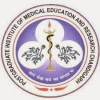How to become an Epidemiologist
Overview, Courses, Exam, Colleges, Pathways, Salary

Overview
Who is Epidemiologist ?
An epidemiologist investigates a disease among the community that has been afflicted by it, including its prevalence, the cause of the sickness, and the steps necessary to keep the disease under control. Additionally, it investigates the disease's social effects. The information acquired by them is used to develop medicines and vaccinations. The conclusions drawn by their observations would lead the public on what measures should be embraced to improve the present conditions as well as to avoid future outbreaks. They are viewed as disease detectives due to their investigative nature to the new diseases.
Typical day at work
What does Epidemiologist do?
To observe and collect information regarding the new disease or outbreak, including the pattern of the frequency, the target group of the outbreak, when and how are the target groups exposed to the cause of the outbreak.
- To utilize various techniques of data collection for accuracy. Both the qualitative and quantitative methods of investigation could be approached.
- To statistically evaluate the data collected and reach accurate and realistic conclusions from it.
- To utilize the specialist computer software for analysis further promising accuracy.
- To coordinate with various specialists whose expertise could benefit and enhance the process.
- To find out information regarding the cause or origin of the outbreak, how it was introduced to the society etc.
- To reach a conclusion on how to fight, the measures that could be adopted to improve the situation.
- To devise plans to prevent future outbreaks.
- To communicate the procedures adopted and the conclusions drawn with the authorities, government and other other health agencies through presentations.
- Guiding and warning the general public about the outbreak, its causes and measures to avoid falling prey to it.
- To assist in public health policy and strategy developments
Abilities and Aptitude needed
What are the skills, abilities & aptitude needed to become Epidemiologist?
An epidemiologist's primary task is to conduct research, and no study can be accomplished without statistics. The first talent that an epidemiologist must possess is the ability to do statistical analysis tastefully. Performing statistics would require high computer skills. The highly advanced softwares provide more specifics and accurate conclusions from the data provided. They must also know medical and biological processes to understand the disease, how it affects the functioning of an individual, how it gets transmitted etc. Critical thinking is required to analyze the pros and cons of every decision being made, and attention to detail would help them pick out anything that is not in the line, all of which would provide accurate results. The results and conclusions obtained must be communicated to the world, and communication skills are required to convey the complex information and results simply.
Pathways
How to become an Epidemiologist?
Entrance Exam
Entrance Exam for Epidemiologist ?
Courses
Which course I can pursue?
Best Colleges
Which are the best colleges to attend to become an Epidemiologist?
Industries
Which Industries are open for Epidemiologist?
internship
Are there internships available for Epidemiologist?
Career outlook
What does the future look like for Epidemiologist?
The epidemiologists work for the government and public health organizations such as the Centre for Disease Control, National Institute of Health, World Health Organizations etc., which leaves a few to work for general hospitals and research activities. Another career option would be teaching positions at universities.




.webp)


